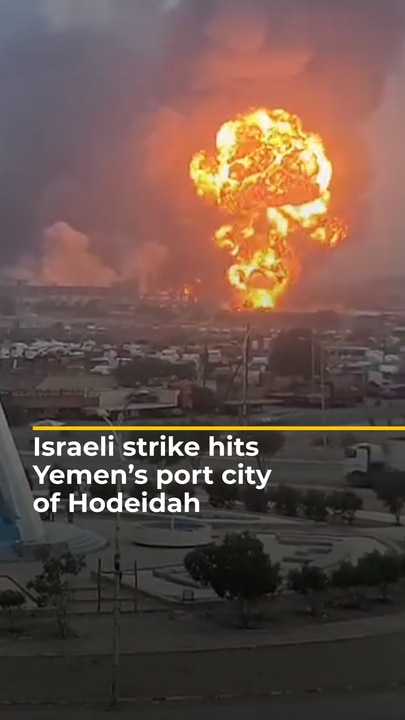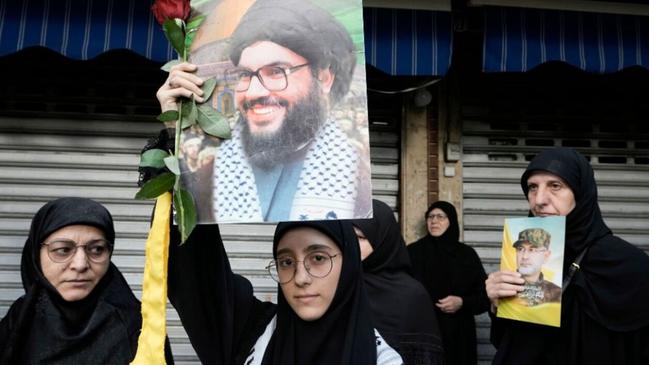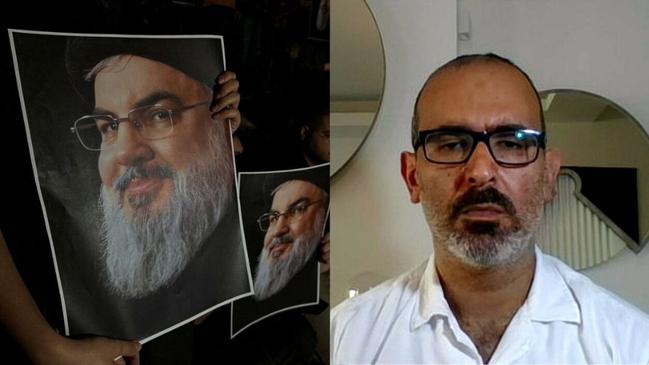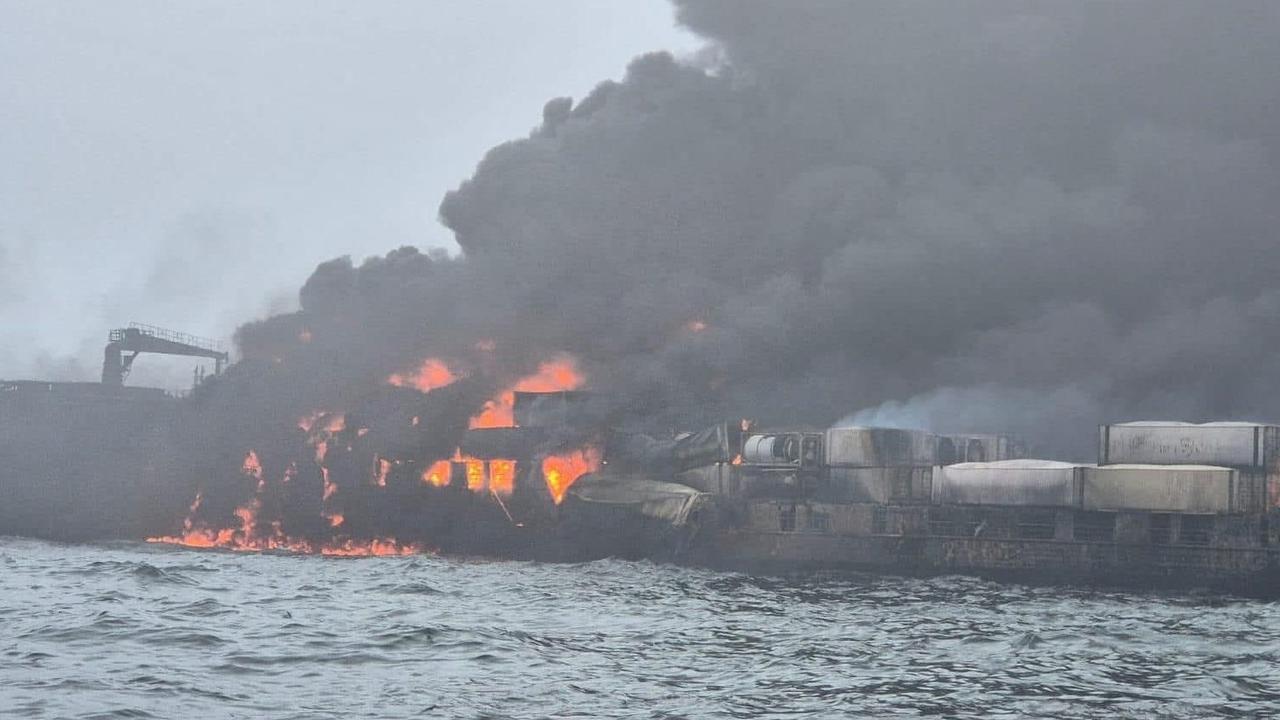Israel targets Yemen’s Houthis in huge strikes on major port
Israel has struck power plants and Yemen’s port city of Hodeidah in its most aggressive strike yet on the Houthis after the rebel group launched ballistic missiles at Tel Aviv and Jerusalem.

Israel struck power plants and a sea port in Yemen on Sunday after the Houthi rebel group launched two ballistic missiles at Tel Aviv in recent days, as the Israeli military continued an air campaign against Hezbollah in Lebanon.
The strikes in Yemen targeted the port city of Hodeidah as well as Ras Issa, the Israeli military said, and relied on dozens of aircraft, including jet fighters and refuelling planes to hit the targets over 1,100 miles from Israel’s border. The targets are used by the Houthis to import oil as well as Iranian weapons, the military said.
النيران تلتهم مدينة #الØديدة ما نشاهده اليوم هو نتيجة مباشرة لأÙعال الØÙ€ وثي ومليشياته الارهـ ـابية المدعومة من #إيران
— عبدالله السالمي Abdullah Alsalemi (@al__salemi) September 29, 2024
هؤلاء الخونة لم يكتÙوا بتدمير البلاد من الداخل بل ورطوا #اليمن ÙÙŠ Øرب مع العالم أجمع Ùˆ Øولوا أرضنا إلى ساØØ© للمعارك ولم يترددوا ÙÙŠ التضØية باليمن واليمنيين من… pic.twitter.com/B1FaHeeMya
The Houthis claimed responsibility for firing ballistic missiles at Tel Aviv on Friday and again on Saturday, as part of their support for Lebanese militia Hezbollah and the Palestinian militant group Hamas.
This was Israel’s second direct attack on the Houthis in Yemen, who have been firing drones and missiles at Israel throughout the past year. Israel attacked Hodeidah’s port in July, setting fuel tanks ablaze.
Hodeidah also has been used by the Houthis as a key base to launch missile and drone attacks on commercial shipping in the Red Sea.
A Houthi official said Israel had targeted fuel tanks at the ports of Hodeidah and Ras Issa, and the group’s official media said two power stations in Hodeidah were also hit. “These are civilian facilities and will not affect our military operations,” the Houthi official said.
Four people were killed and 40 were injured in Sunday’s strikes, according to the Houthi-led Health Ministry in Yemen.
Eyewitnesses in Hodeidah said plumes of smoke rose into the air long after the initial strikes.
The air raids in Yemen come as Israel continued to strike Hezbollah targets in Lebanon on Sunday, saying it killed a senior official as the Lebanese prime minister warned of a mass-displacement crisis as hundreds of thousands flee from the fighting.

“This is Lebanon’s largest displacement crisis in history,” said Najib Mikati, the country’s caretaker prime minister. “The number of displaced people is much higher than the reported figures; estimates suggest it could reach one million.” More than 200,000 people have been internally displaced, according to the United Nations High Commissioner for Refugees, and 50,000 have crossed from Lebanon into Syria.
Israel’s military said Sunday that it killed senior Hezbollah official Nabil Qaouk a day earlier in an air strike, the latest in a string of targeted killings of Hezbollah leadership including its leader, Hassan Nasrallah. Qaouk led the group’s preventive security unit and was a member of its central council, the military said.
On Friday, Israel killed Nasrallah along with other senior Hezbollah and Iranian officials. The strike hit Hezbollah’s underground headquarters in Beirut as part of an aggressive air campaign aimed at stopping the group from shooting into northern Israel and allowing tens of thousands of displaced Israeli residents to return home. Israel has launched more than 2,000 air strikes against the U.S.-designated terrorist group in recent days.
Iranian officials on Sunday said Tehran would respond to the killing of Nasrallah.
“Iran’s reaction will take place at the right time and according to Iran’s choice against the crimes of the Zionist regime,” said Javad Zarif, Iran’s vice president for strategic affairs.
At least 49 people were killed and 80 injured by Israeli strikes across Lebanon on Sunday, according to the Lebanese Health Ministry. Since Sept. 16, more than 1,000 people have been killed in Israeli attacks in Lebanon, 143 of whom were women and children, the ministry said.
Meanwhile, the Pentagon said Sunday it would keep the USS Abraham Lincoln carrier strike group and its accompanying ships near the Red Sea. The Lincoln had been expected to leave when the USS Harry S. Truman carrier strike group arrived. The Truman will now be operating near the Mediterranean Sea. It is unusual for the U.S. to keep two carriers in the region.

The U.S. already had beefed up its military presence in the region by deploying the USS Wasp Amphibious Ready Group in the eastern Mediterranean Sea. The U.S. also deployed additional fighter and attack squadrons into the region.
Beirut was on edge on Sunday, with normally bustling areas of the centre largely empty of people and the few pedestrians outdoors walking past some closed shops and restaurants. Civilians who fled Beirut’s southern suburbs, where the air strike that killed Nasrallah hit on Friday night, camped along the Mediterranean seafront and in Martyrs’ Square, a vast concrete plaza in the centre of the capital. In some predominantly Christian areas of the capital, celebratory gunfire could be heard following the announcement of Nasrallah’s death on Saturday.
Yousef Geagah, a butcher in his 60s, sat on Beirut’s Ramlet al Baida beach with his large family. He said Hezbollah had called him and told him he should leave his home in the south of the city because it isn’t safe, so he joined his family who had already left the Ain Al Delbeh district after the Nasrallah strike.
“The sea is the safest place,” he said, guessing that the Israelis won’t bomb areas near the coast. He said his family won’t return home until the situation calms down.
The Lebanese army, a key unifying institution in Lebanon’s fractious society, issued a plea for unity following the killing of Nasrallah, reflecting concerns that the attacks on Hezbollah could stir sectarian divisions or otherwise unsettle the complex balance of power in the country, which suffered a devastating civil war in the 1970s and 1980s.
In downtown Beirut’s Martyrs’ Square, a few hundred people displaced from the southern suburbs sat on the ground or atop blocks of plastic foam. Many of them spent the night on the sidewalks or a nearby parking lot; others arrived in the morning after sleeping on the airport road.
People expressed grief but also defiance. A 25-year-old nurse who fled from southern Beirut said people would support Hezbollah regardless of whether Nasrallah was killed. “He is our national shield,” he said.
The refugees included Syrians who had fled their own country’s civil war and were now living in Beirut. Aida Rabie El Din, a mother of 10, said she slept with her family on an airport road overnight and then took a van to Martyrs’ Square fearing that the road wasn’t safe. She said she can’t go back to Syria because it is even more unsafe for her, since she comes from a rebel area.
Also on Sunday, an Iranian-backed militia in Iraq claimed responsibility for a drone attack that Israel’s navy said was intercepted near the Red Sea port city of Eilat. Iranian-aligned militants in Iraq and Yemen have stepped up attacks against Israel in recent weeks in support of Hezbollah and the Palestinian militant group Hamas, which are also backed by Iran.
Rocket sirens sounded again in northern and southern Israel, with at least eight rockets fired from Lebanon toward the vicinity of Tiberias, a northern Israeli town.
The Hezbollah targets struck by the Israeli air force Sunday included rocket launchers, weapons caches and other infrastructure, the Israeli military said.
Israel has sharply escalated its attacks on Hezbollah in recent weeks, beginning with elaborate intelligence operations that caused thousands of pagers and walkie-talkies carried by the group to explode almost simultaneously over two days and a targeted strike that killed much of the group’s military leadership.
Hezbollah began attacking northern Israel on Oct. 8, a day after Hamas’s attacks on southern Israel that sparked the current war in Gaza, saying it was supporting the Palestinian group.
Dow Jones





To join the conversation, please log in. Don't have an account? Register
Join the conversation, you are commenting as Logout